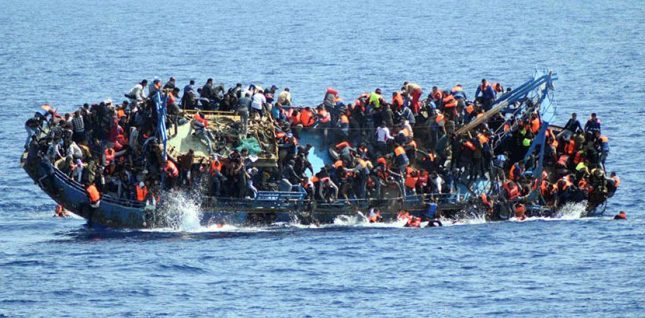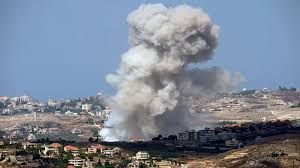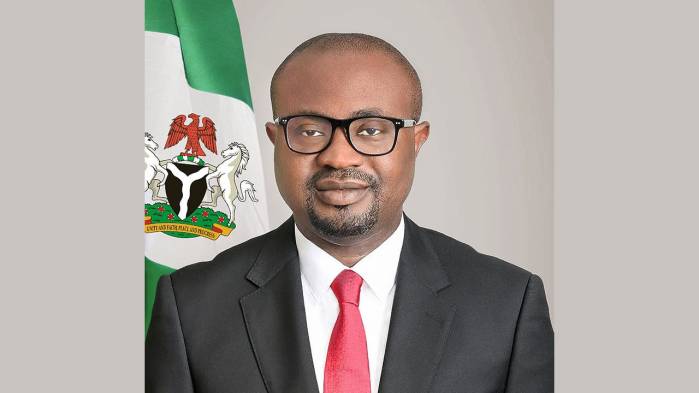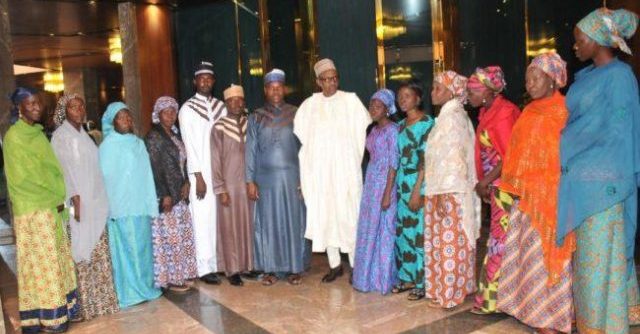At least 48 migrants have died after their boat capsized off the eastern coast of Tunisia, the Tunisian government said.
Sixty-seven others – from Tunisia and elsewhere – were rescued by the coastguard.
The country has become an important new route for migrants trying to make the crossing to Europe in the past year.
This comes after moves against human traffickers in Libya, who have regularly enslaved, tortured or murdered migrants.
The latest boat to go down off Tunisia was packed with about 180 people, about 100 whom were Tunisian, the country’s interior ministry said.
The boat was five miles from the Kerkennah Islands and 16 nautical miles from the city of Sfax, the ministry said.
Rescue operations were suspended late on Sunday but will resume on Monday morning, officials said.
One survivor told Reuters that the captain had abandoned the boat after it started sinking to escape arrest by the coast guard.
Another survivor, Wael Ferjani, said the boat had a maximum capacity of 90 people – only about the half the number actually on board.
“We could touch the water with our hands, and water was coming into the boat,” he said.
“Those who could escape fled, others drowned, we stayed there until almost five in the morning, then fishermen came to help us, and then the army arrived.”
The deaths come on the same day Italy’s new Interior Minister Matteo Salvini said on a visit to Sicily that the island must stop being “the refugee camp of Europe.”
- At least 7 dead after Guatemala’s Fuego volcano erupts
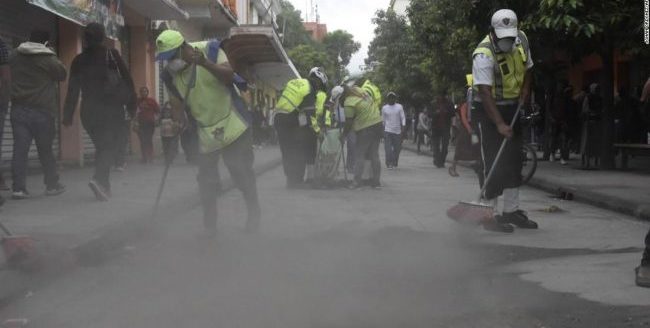
Guatemala’s Fuego volcano erupted on Sunday for the second time this year, leaving at least 7 people dead and 20 injured, as officials warned of continued volcanic activity.
The volcanic eruption spewed a river of red, hot lava and belched thick clouds of smoke nearly six miles into the air, according to the CONRED, the government’s national coordinator for disaster reduction.
The explosion stands to affect 1.7 million people, said Sergio García Cabañas, director of CONRED.
More than 3,100 people have been evacuated from their homes while search and rescue efforts continue into the night, Cabañas said.
So far, 15 have been hospitalised, including 12 children, some of whom suffered severe burns, the Minister of Health said.
The volcano, whose name means fire, is one of Central America’s most active. It is located near the colonial city of Antigua.
Sunday’s explosion rained soot over the popular tourist destination and other villages in the Sacatepéquez department, covering them in ash.
- Massive NATO exercise starts in Poland and the Baltics
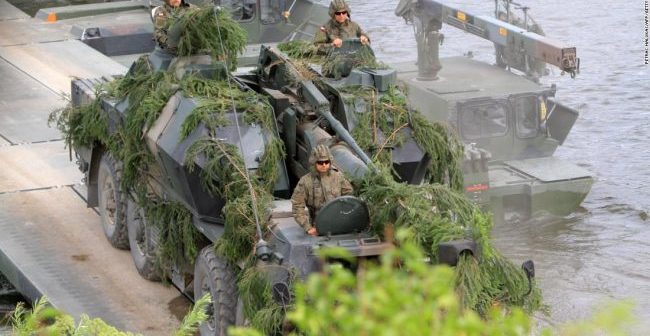
A massive US-led military exercise involving 18,000 soldiers from 19 nations, primarily NATO members, kicked off on Sunday along the alliance’s eastern border.
Saber Strike 18 will take place until June 15 in Poland, Latvia, Lithuania and Estonia.
The annual multinational exercise, which is being held for the eighth time, “is the platform to validate our collective capability to rapidly respond to and reinforce allies in a time of crisis,” CNN quoted US Army Europe, as saying.
It is “a clear demonstration of the commitment and solidarity of the alliance.”
“When NATO infrastructure directly approaches our borders, this certainly does not contribute to security and stability on the continent in any way,” Kremlin spokesman Dmitry Peskov was also quoted as saying while responding to a question about the creation of a US military base in Poland.
Relations between NATO and Moscow have grown increasingly tense in recent years.
Russia’s annexation of Crimea in 2014 and the ongoing fighting between pro-Russian separatists and government forces in eastern Ukraine have caused growing unease among NATO members in Eastern Europe and the Baltic states.
“Saber Strike 18 is not a provocation of Russia but an exercise with our allies,” US Army Europe said. “This is what normal deterrence business looks like.”
- Italy migrants: Matteo Salvini calls for end to Sicily ‘refugee camp’
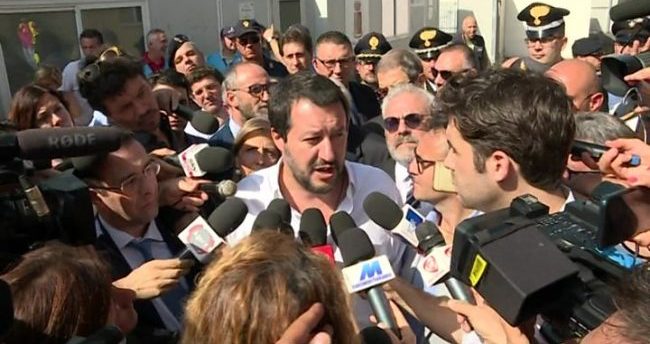
Italy’s new interior minister, Matteo Salvini, has said on a visit to Sicily that the island must stop being “the refugee camp of Europe”.
The leader of the far-right League party said his government’s plans on migrants were not “hard line… but common sense.”
He said that increasing deportations and limiting new arrivals would end up saving lives.
However, critics have cast doubt on the feasibility of Mr. Salvini’s plans.
Italy is the main destination for migrants crossing from North Africa to Europe, although numbers have fallen in recent months.
The country’s new populist government involving the anti-establishment Five Star Movement (M5S) and the League was sworn in last week, ending months of uncertainty for the EU’s fourth-biggest economy.
The League is strongly anti-immigration and a joint plan agreed with the M5S in forming the new government reflects that stance.
Speaking on Sunday in the Sicilian port of Catania, Mr. Salvini said: “Enough of Sicily being the refugee camp of Europe. I will not stand by and do nothing while there are landings after landings. We need deportation centres.”
He added that he believed the “best way to save lives is to prevent these people from getting on the boats.”
He said he would work to discourage “thousands of desperate people who have the illusion that in Catania, in Sicily, in Italy there is housing and work for everyone.”
“There is not enough housing and work for Italians, let alone half the continent of Africa.”
- Commonwealth Bank offers to pay record fine in laundering case

Australia’s Commonwealth Bank has said it will pay a $700m (£400m; $530m) fine for breaching anti-money laundering and counter-terror financing laws.
The scandal relates to 53,000 suspect transactions that the bank did not immediately report to authorities.
Last year, Australia’s financial intelligence agency accused the lender of “serious and systemic” law breaches.
If a court approves the fine, it will be the largest civil penalty in Australian corporate history.
The bank, Australia’s largest lender, said it would also cover A$2.5m in legal fees accrued by investigators.
“While not deliberate, we fully appreciate the seriousness of the mistakes we made,” chief executive Matt Comyn said on Monday.
Australia’s scandal-plagued financial sector is at the centre of a national inquiry into misconduct.
Commonwealth Bank and intelligence agency Australian Transaction Reports and Analysis Centre (Austrac) agreed to the fine following court-ordered mediation.
Most of the breaches related to the bank’s deposit machines, which could accept up to A$20,000 in cash at a time, anonymously if the person depositing was not a Commonwealth customer.
The bank failed to meet deadlines for reporting transactions over the legal threshold of A$10,000, according to Austrac.
Commonwealth Bank said the breaches were due to a coding error, which meant the machines failed to automatically report the transactions.
